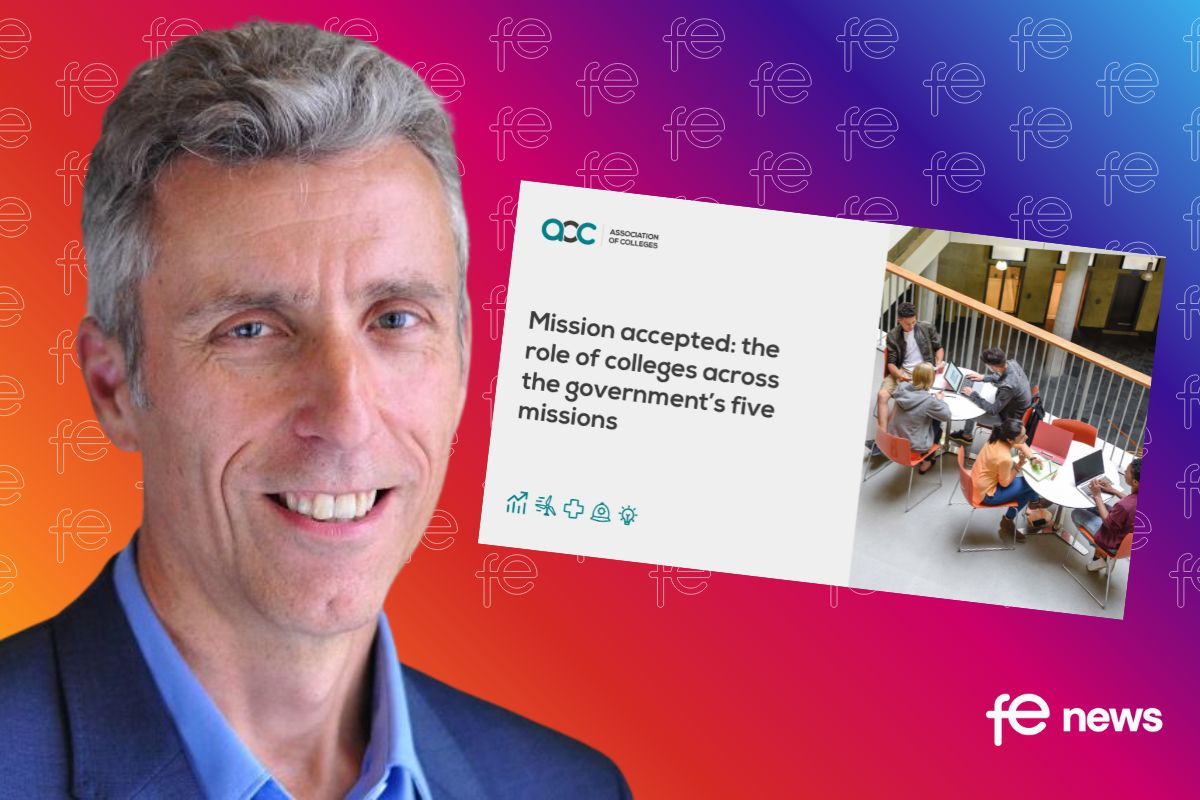Anne Milton addresses Association of Colleges conference

Apprenticeships and Skills Minister Anne Milton speech at the Association of Colleges conference:
It gives me enormous pleasure to be joining you at the Association of Colleges Conference for a second year. I and my colleagues in the Department value the support, the collaboration and the critical friend that you continue to provide across all of our work in FE. You remain a valued partner – and long may this continue.
It is also great to be back in the West Midlands, where the legacy of all our industrial innovators is woven into the very fabric of the place. Colleges here, such as Walsall and Dudley College of Technology are among those who will be continuing this industrial legacy as the first to offer T Levels, a once in a lifetime change to technical education.
All of your colleges are crucibles of change within your communities. You have a vital role to play in making sure that all people, of all ages, whatever their background, have the skills they need for jobs that give them a start in life. A start in life, a 2nd, 3rd or even 4th chance to kick-start a new career.
A quick update on recent developments, we are publishing the outcomes of the College Staff Survey today, which greatly improves the information we have on teachers and leaders in FE colleges in England. It provides vital insights into the experiences, qualifications and expectations of those who teach and train in this sector. The survey showed that 82% of principals and 73% of leaders had worked in industry before their existing role. And two thirds of teachers had worked in industry before joining the FE sector a huge asset to FE. We want to build on this with the £5m in our Taking Teaching Further programme. Taking Teaching Further will support for up to 150 industry professionals to become FE teachers, and fund up to 40 projects.
We now have a new Apprenticeship Feedback Tool. By inviting employers to give feedback on apprenticeship training providers, and publishing this data in real time. This will give us early warning of where there are problems and which training providers are doing well. So far, we have had well over 4,000 responses, of which nearly 90% rated their provider good or excellent (nearly a third were excellent). There is still room for improvement though and we will be rolling this out to apprentices as well.
Alongside the Post 18 Review, we are also looking at the funding and resilience of the FE Sector, the uptake of L4/5 qualifications, and the crucial part that FE plays. All of these are critical landmarks for the future of FE. We need to make sure that FE has the structures, the funding and the support it needs.
We have seen significant achievements in the work of the FE Commissioner and his team. With 29 Diagnostic Assessments taking place – so that we reach Colleges before any greater challenge hits. And a 45% reduction in formal interventions compared with last year, Richard and his team are investing a huge amount of time and expertise to continually strengthen the sector.
Since 2016, we have allocated over £330m of funding to support major college restructuring, following the Area Review process. We are now considering the final applications for the Restructuring Facility – and we expect the final figure for restructuring funding to rise significantly before the programme ends next year.
The Strategic College Improvement Fund had its pilot phase earlier in June this year, which saw 14 colleges receive grants totalling over £2m, and we have just launched our next phase earlier this month; providing £15m in funding to help colleges build awareness of good practice, foster mutual learning and really push forward rapid action to improve quality in their provision. There has not been a moment in my 40 odd years in the public sector where I have not heard the plea to share best practice. We really need to make this happen. As David Corke, the director of policy at the AoC, mentioned, “it is important to continue to share best practice and look at ways we can continually drive up quality within the sector”. So let’s get on and do more of it.
We have also announced 21 Centres for Excellence across the country, two of which are here in the West Midlands. We are investing over £40 million over the next five years to build on the success of the Maths Hubs model in schools, adapting it to improve the quality of teaching post-16.
We know that our ambitions for top quality further and vocational education are not going to be cheap. And I am very aware of the financial challenges you have faced. But with £2.5 billion being spent on Apprenticeships by 2020 and the introduction of T Levels, there are significant opportunities ahead to strengthen the impact you have on your local communities.
We will be announcing changes to the operation of the register of apprenticeship training providers. We want to improve the quality of apprenticeship training and are designed to strengthen the application process and raise the bar for entry.
The register will be re-opening for applications and will remain open, enabling new providers to apply when they are ready to. Existing providers on the register, including FE colleges, will be required to reapply over the next 12 months. Take the application process seriously so that apprenticeships training can be part of your offer to employers and apprentices.
And then T Levels. The introduction of T Levels will change the delivery and perception of technical education. I am hugely grateful for the energy and passion that colleges are bringing to the design and delivery of these reforms. We are providing £38 million in capital to support the initial roll-out of T Levels from September 2020 which will be used to improve the quality of facilities and equipment that will be used to deliver T Levels. T Levels are a once in a lifetime opportunity to transform technical education and give young people the skills they need. They will play a significant role in giving employers the skilled workforce they need. And this is a huge opportunity to raise the profile of further and technical education.
We are investing up to £20m over the two years to March 2020 to support providers as they prepare for the introduction of T Levels.
As part of this £20m, we have announced the investment of £8m in a new bespoke T Level Professional Development offer, led by the Education and Training Foundation, to help staff prepare for the change and successfully deliver the first T Levels. This will be vital training to build on the expertise we have currently, so we are ready for the future.
But T Levels apart – there is the apprenticeship levy money out there in the market – you need to show what you can do on training and be real competition for the Independent Training Provider market.
Both apprenticeship training and T Levels will only succeed if delivered by high quality, resilient institutions. The one common feature of every successful institution is high quality leadership and governance. Of course, you know that better than I do, but it bears repeating.
All too often, as I sign off requests for emergency support, I see colleges in severe financial circumstances that could have been avoided if they had had a strong board and leadership. Well-meaning Principals, well-meaning Governors, they may be. But in this day and age, robust, financial management and leadership is the route to a successful College. I am pleased to announce the launch of a College Governance Guide, which will set out clearly, in one place, what we expect of governors, as well as offering recommended practice.
We are also about to launch a new Learning and Development programme, to support chairs, governors and clerks. I am very grateful to the Education and Training Foundation for their partnership in building upon the successes of previous programmes at the Oxford Said Business School. For example, over 3,800 FE teachers have attended other ETF enhancement programmes designed to improve their knowledge and confidence in teaching maths and English GCSE. This is a major investment in sector leadership. It is important to me, as I’m sure it is to you, and I hope you will take advantage of it.
The National Leaders of Further Education represent some of the best FE leaders and they, together with their teams, have been supporting improvement in more than 30 colleges. I urge you to use them, learn from them, and share them further.
Today, we are publishing a report on The Contribution of FE to social mobility that tracks individuals through post-16 learning and into the workplace. It shows the critical role that high-quality Further Education plays in helping those who come from more disadvantaged backgrounds and areas achieve success.
Shared best practice, collaboration or partnership, working together – within and between colleges, all play an important role in improving further education. And play a role in improving social mobility.
Social Mobility is used by politicians, think-tanks, the media and is liberally sprinkled through many a report that I read. For me, social mobility means that people are not bound by the constraints of their birth. That where you are born, where you live, who you know or who you are should have no adverse impact on where you get to. Everyone should be able to succeed.
I would like to pay tribute to David Hughes and the AoC for the work they do representing FE Colleges. AoC’s campaign “Love our Colleges” was a huge success. But in this world, where everyone vies for tax payers’ money, a one-off campaign is not enough on its own.
You must get your leadership and governance right; you must use your money wisely, making realistic assessments of your business model; you must make good use of the money available and you must make use of the resources we put your way. Then the case can be secured for additional funding.
I overheard a conversation recently where someone was asking what FE was. The reply came back that FE wasn’t schools and it wasn’t university. The reply said so much- FE squashed between schools and universities. Sandwiched between the two sectors we hear so much from in education.
I want a positive vision for FE. I want FE Colleges to stand on their own ground, proud of what they do and proud of the incredible results they achieve. Effective, efficient and focussed and with an unique offer.
Every single person in this room will have changed someone’s life. Turned around the fortunes, sometimes against the odds- of someone who possibly didn’t get the best start in their life or in their education.
I have the best job in Government – because rarely a day goes by that I don’t hear one of those inspirational stories. Help me to help you turn dreams and hopes into reality and together we can be proud of the unique and very special contribution that FE makes.
Anne Milton, Apprenticeships and Skills Minister











Responses